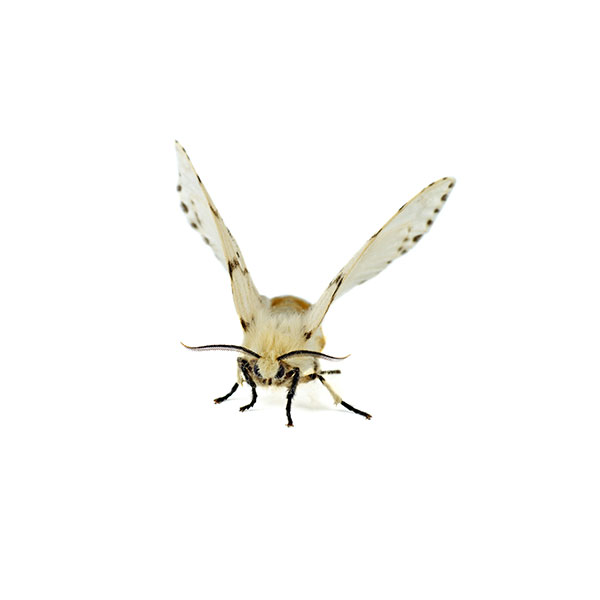Webworms in Long Island
The fall webworm is native to North America and is found throughout most of the United States and southern Canada. Caterpillars construct large, unsightly webs on the outer ends of tree branches while they feed in late summer and early autumn. They are distinctly different from the Eastern Tent-Caterpillar, which prefers to create webs in the crook of tree branches. Webworms feed on the leaves of at least 80 species of shade, nut, and fruit trees. Although they don’t cause permanent damage, their webs can be unsightly in large amounts.
Webworm Habitat
The fall webworm lives in areas where host trees occur, namely hardwood forests and landscapes. Infestations are most common on trees growing in open areas, such as along roadsides, in yards, and on forest edges. Fall webworm moths are attractive white moths emerging between May and July to mate. Female moths lay several hundred eggs on the undersides of leaves, and when the eggs hatch, young larvae construct a nest by webbing leaves together. Larvae feed on foliage enclosed by the nest, which expands as the larvae develop.
Webworm Behaviors, Threats, or Dangers
Webworms do not bite, are not poisonous, and are considered to be more of a nuisance pest. Although the webs are unsightly, defoliation by fall webworms usually causes little harm to the tree. Most trees are already preparing for winter dormancy, so few energy reserves or nutrients are lost. However, most property owners prefer to eliminate webworm nests. Since fall webworms are not considered harmful, their webs can be removed by using a long branch to open the web itself. Contact your local exterminator for help with webworms.
Need help with Webworm control?
$50 OFF PestFree365+
Leave your information below and we’ll be in touch with a FREE quote!
"*" indicates required fields
*During normal business hours. After hours calls will be returned the next business day.






